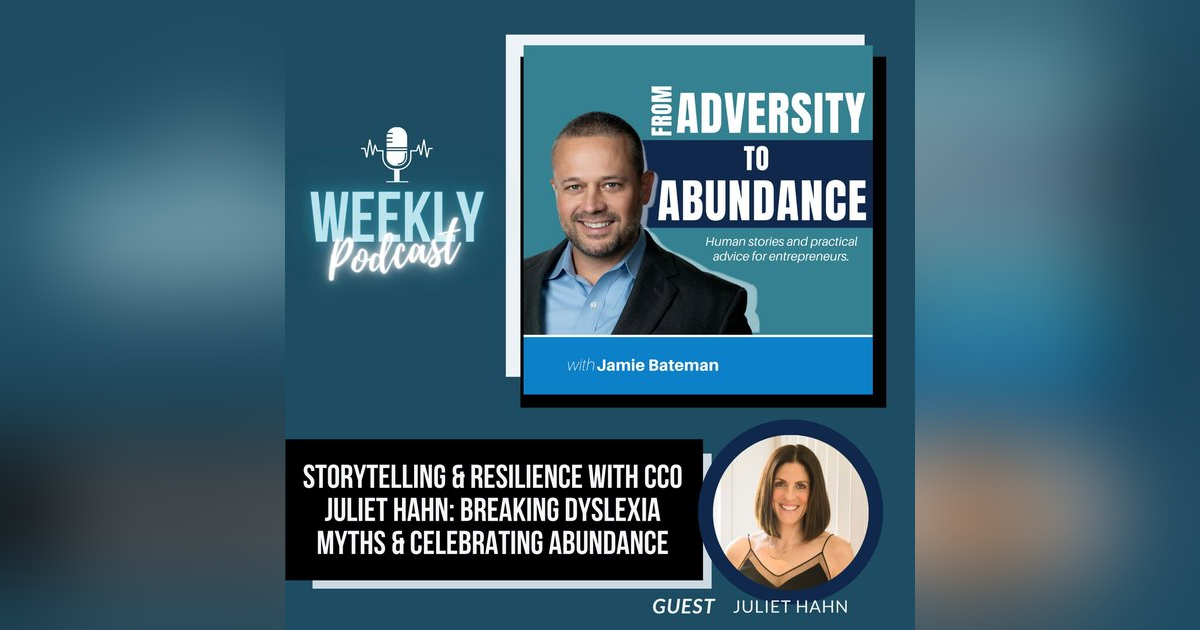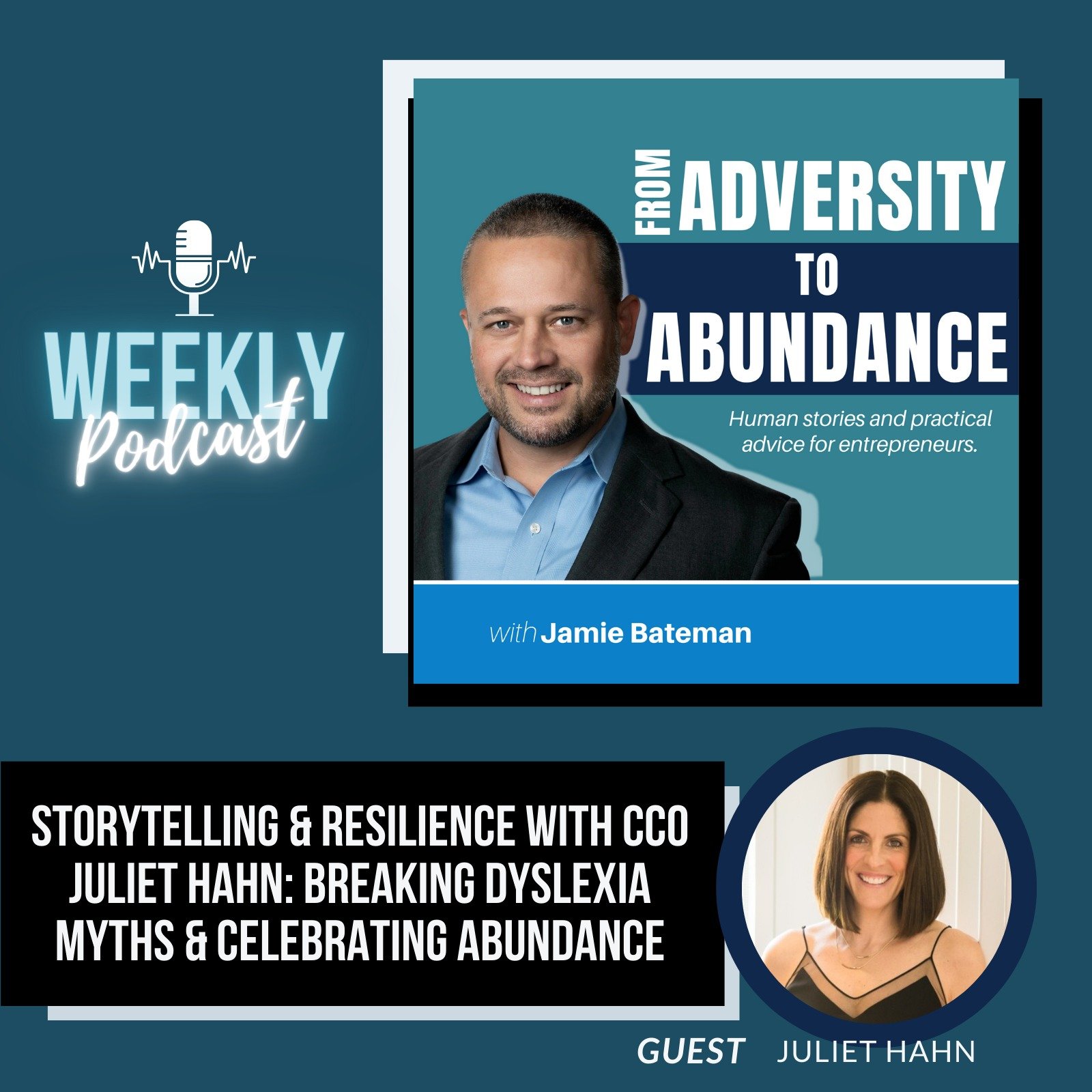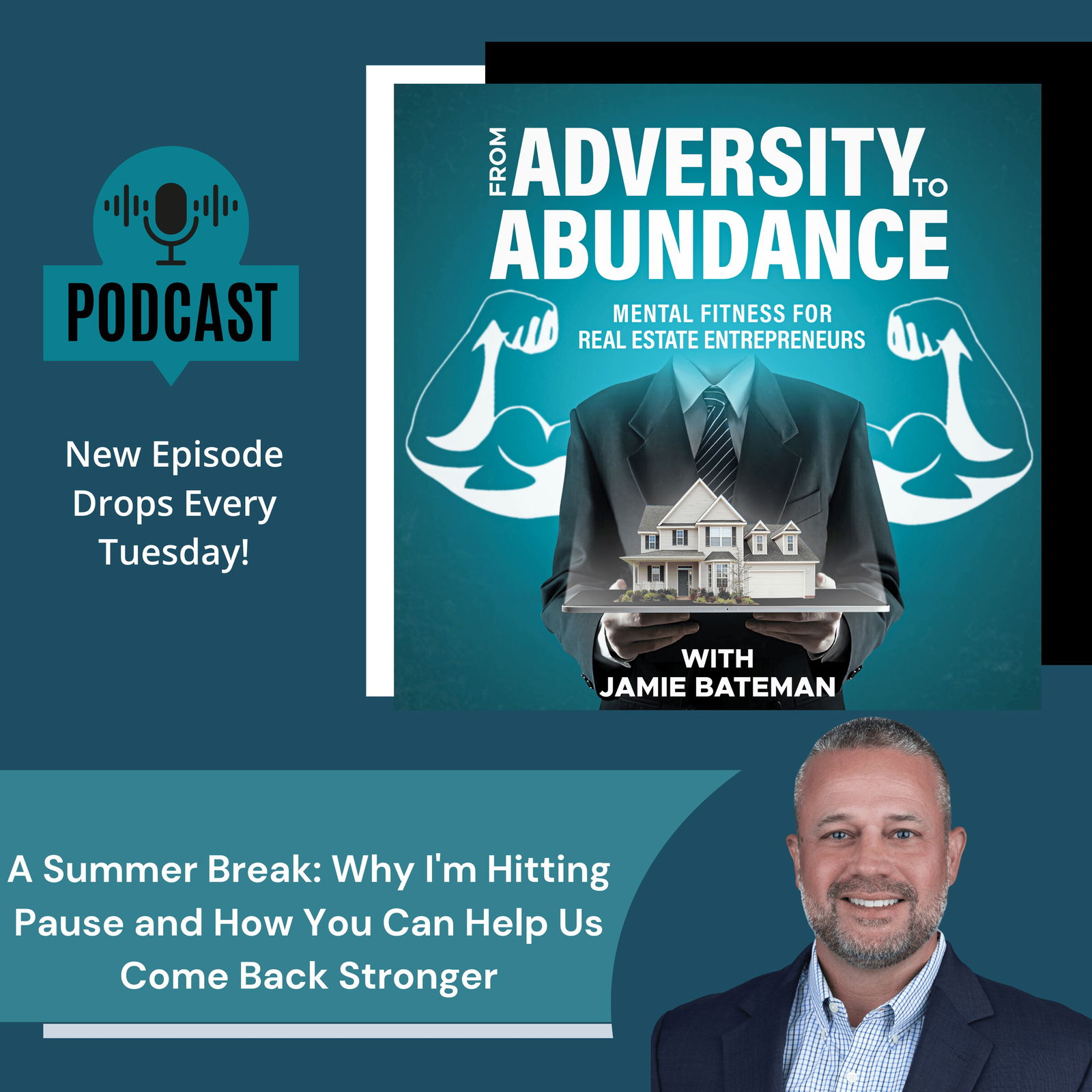Storytelling & Resilience with CCO Juliet Hahn: Breaking Dyslexia Myths & Celebrating Abundance


Are you tired of hearing these myths about dyslexia? Myth #1: Dyslexics are not intelligent. Myth #2: Dyslexics will never be good readers or writers. Myth #3: Dyslexia is a disadvantage that cannot be overcome. In our upcoming episode, Dyslexia Unveiled, our guest Juliet Hahn will debunk these myths and share the truth about overcoming dyslexia and embracing personal strengths. Get ready to be inspired and empowered!
Introducing Juliet Hahn, an exceptional figure who wears multiple hats with ease. She is at the helm of communications at FetTech, handling all aspects of public relations and corporate messaging. Juliet's quest to communicate effectively began at a young age when she realized her unique potential and challenged herself to excel despite being dyslexic. Exhibiting a creative streak that belies traditional norms, she has taken on various roles and excelled in them. A podcaster and a storyteller at her core, she believes in the power of narratives and the ability to connect on a human level. Juliet's rich experience of overcoming personal adversity has honed her skills and led her to become a source of inspiration.
“Don't let a label define you. Dyslexia doesn't determine your intelligence or potential. Think differently and embrace your unique way of learning.” --Juliet Hahn
Books and Resources
The Gift of an Ordinary Day: A Mother's Memoir
Connect with Juliet Hahn:
WEBSITE: https://www.iamjuliethahn.com/
PODCAST: Your Next Stop Podcast
Word Blindness: Dyslexia Exposed
LINKEDIN: https://www.linkedin.com/in/iamjuliethahn/
FACEBOOK: https://www.facebook.com/iamjuliethahn
INSTAGRAM: https://www.instagram.com/iamjuliethahn/
TWITTER: https://twitter.com/iamjuliethahn
YOUTUBE: https://www.youtube.com/channel/UCuCLsAHoGBaiItEFJdl4h3w
Haven Financial:
https://www.myfinancialhaven.com/jamiebateman/
ATTENTION:
Unlock the secrets to a transformative life with “From Adversity to Abundance: Inspiring stories of Mental, Physical and Financial Transformation”. Buy your copy now and embark on a journey from challenges to triumphs!
AMAZON: https://www.amazon.com/dp/B0CGTWJY1D?ref_=pe_3052080_397514860
Connect with us
WEBSITE: https://www.adversity2abundance.com
Leave us a rating or review: https://www.adversity2abundance.com/reviews/new/ or here
Got comments, feedback or suggestions? We’d love to hear it! https://www.adversity2abundance.com/contact/
Follow From Adversity to Abundance Podcast
FACEBOOK: https://www.facebook.com/profile.php?id=100089126144055
INSTAGRAM: https://www.instagram.com/adversitytoabundancepodcast/
LINKEDIN: https://www.linkedin.com/company/89949391/admin/feed/posts/
YOUTUBE: https://www.youtube.com/@FromAdversity2AbundancePodcast
Connect with Jamie
BOOK: From Adversity to Abundance: Inspiring Stories of Mental, Physical, and Financial Transformation
LINKEDIN: https://www.linkedin.com/in/jamie-bateman-5359a811/
TWITTER: https://twitter.com/batemanjames





